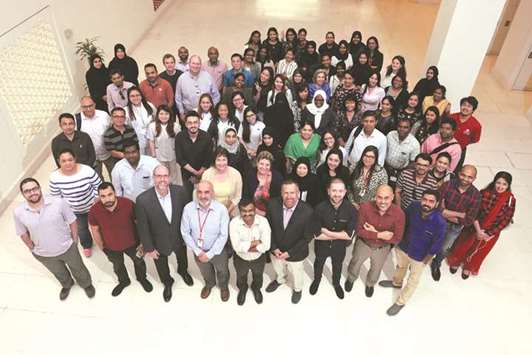Weill Cornell Medicine – Qatar (WCM-Q) organised a training seminar titled ‘Clinical Containment Strategies for Emerging Infectious Disease’, with the participation of more than 160 from the healthcare sector in Qatar.
The two-day seminar explained the history of infection control, the human risk factors involved in the spread of disease, strategies to mitigate contamination risk, and how to set up an effective isolation unit. It also explained the important Standard Operating Procedures (SOPs) for work in an isolation unit. These covered practical measures such as how to safely clean up spills, clinical medical surveillance, how to respond to needle-stick injuries and how to safely remove gloves to minimise the risk of inadvertent contamination.
US-based expert and trainer in behavioural sciences, Sean G Kaufman, emphasised that the key to success in contamination depends upon rigorous training, comprehensive knowledge of disease, demonstration of competency in relevant standard operating procedures, and clearly established protocols.
He said: “In order for us to have appropriate protocols and training we actually have to be able to classify where a patient goes when we know what they have and what transmission risk they present. For example if a patient has CCHF (Crimean-Congo haemorrhagic fever) then they go to this particular area and these specific protocols are activated. If they have Mers (Middle East Respiratory Syndrome) or Sars (Severe Acute Respiratory Syndrome) then these particular protocols are activated in this particular location. Once you diagnose what your patient has then you have specific protocols and training for the nurses and doctors who will be treating these patients.”
The lecture was accredited locally by the Qatar Council for Healthcare Practitioners-Accreditation Department (QCHP-AD) and internationally by the Accreditation Council for Continuing Medical Education (ACCME).

Participants of WCM-Q seminar on infectious diseases.
